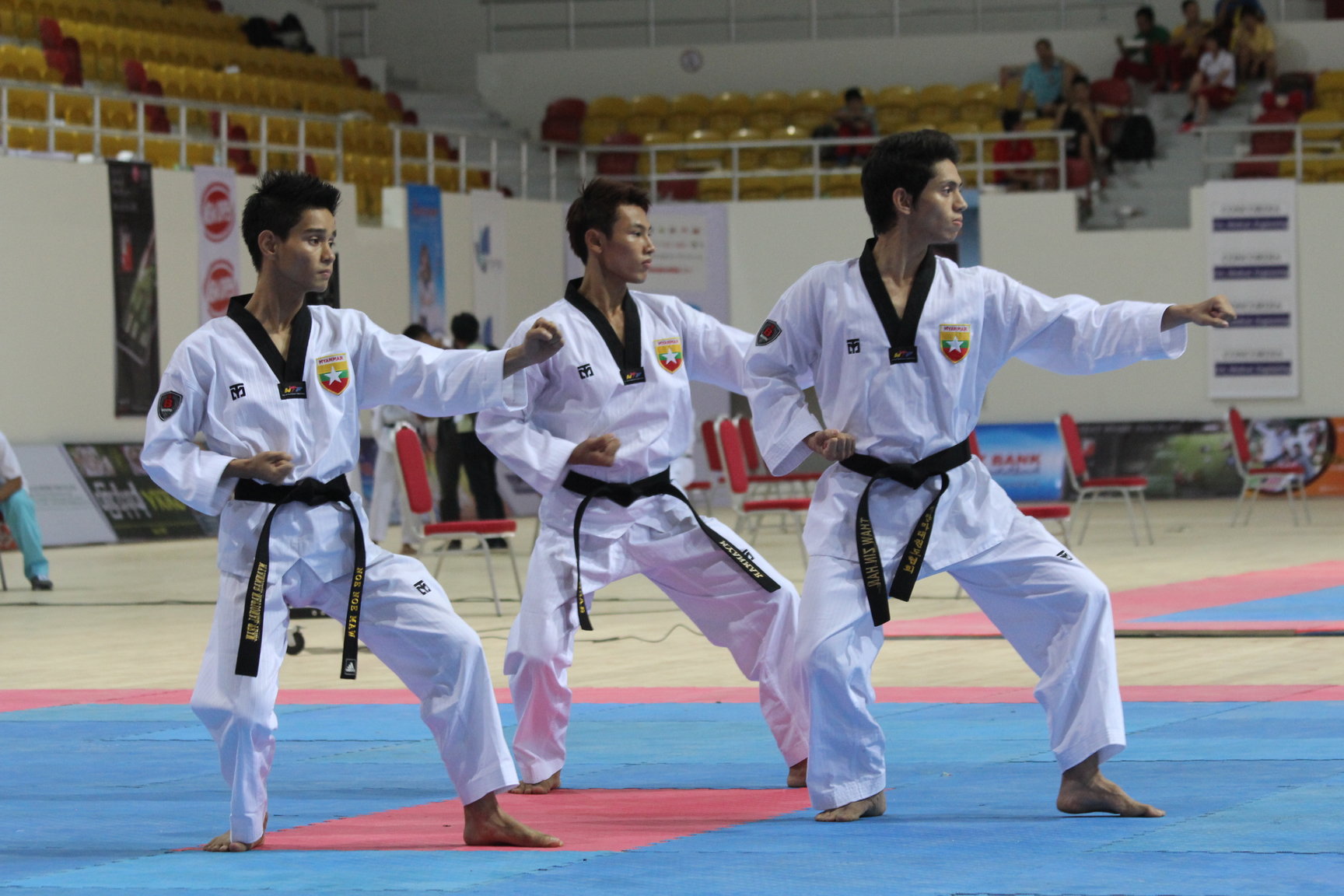With just one month to go till the Southeast Asian (SEA) Games begins in Burma, it has not escaped our attention that the opening ceremony in Naypyidaw will take place on 11.12.13, a catchy and auspicious date.
Everyone remembers that the former military generals of Burma – and none more so than dictator Gen. Ne Win – enjoyed a dark penchant for numerology, and a superstitious inclination toward the number 9.
Still, it’s probably no more than a coincidence that the numerals from that date, 1, 1, 1, 2, 1 and 3, add up to nine. Some mystic conspiracy theorists might also point to the fact that these are the 27th SEA Games (2 + 7 = 9) or the fact that it is 44 years since Burma last hosted this event, making a nice sequence: 11, 22, 33, 44 – when one invokes the notion that the games will take place between the 11 and 22 of December, will feature 33 sports events, and is hosted in Burma for the first time in 44 years.
Even those among us who do not regard these numbers as ominous will acknowledge that Southeast Asians, Buddhists in particular, put much weight on selecting auspicious dates and times for important events. Indeed it is highly possible that one of Burma’s famous soothsayers played a hand in helping the games committee tackle the challenges they were tasked with when the country was controversially awarded the honour of hosting this sports extravaganza back in 2010.
[related]
The logistical mountain facing the remote Burmese capital appears to have been conquered. The preparations have been all-encompassing. The main Wunna Theikdi stadium has taken three years to build but is ready on time, looking pristine and appropriate for international sporting gladiators with a capacity of 30,000 spectators.
Visas on arrival are being offered to tourists during the games in order to boost attendances. More flights, buses and tours to Naypyidaw are to be laid on. Fearing that the swelling of activity causes an electricity blackout, large generators have been brought in. Speaking to The Irrawaddy recently, an anonymous official said that if a power cut occurred during the opening or closing ceremonies, the loss of face would be so severe that the responsible officials and ministers would be fired.
Some US$6 million is being spent on security training for hotel staff, and CCTV security cameras are to be installed at all major hotels. A Filipino sports official had earlier expressed his concerns about the security situation following a series of bomb blasts in Rangoon and other parts of the country; however SEA Games Operations Committee Chairman Zaw Winn, who is also Burma’s deputy minister of sports, told Channel News Asia that the Ministry of Home Affairs has made the necessary security arrangements for the event and that he “is not worried” about their ability to provide security for visitors.
ATMs are suddenly sprouting up in the capital, and to counter the current lack of telecommunications services, the government has announced it will hand out 30,000 free temporary SIM cards to athletes and trainers.
Local authorities are hoping that 1,000 taxis will be on the streets of Naypyidaw during the games to cater for the hundreds of thousands of spectators, tourists, athletes, officials and media who will descend en mass for those 11 days.
In total, the bill the Burmese government will pick up for the SEA Games is estimated to be in the region of 340 billion kyat (US$350 million).
Nonetheless, excitement levels are high and many Burmese are rightly proud to play host to this event. LED screens are to be installed in public areas around Naypyidaw so that non-paying spectators can enjoy the sporting feast, while a proposal to close schools to allow students and children to watch the games is presently being discussed.
The government is clearly determined to make the SEA Games a success and to use the event as a springboard ahead of Burma’s assumption of the chairmanship of the Association of Southeast Asian Nations (ASEAN) in 2014.
President Thein Sein has urged all Burmese sportsmen and women to do their best and to win as many of the 1,557 medals as possible. Sports Minister Tint Hsan has set the Burmese team a goal of 100 gold medals. The last time Burma hosted the SEA Games in 1969, they won a record 57 golds.
Winning a gold medal in the men’s football would be the highest aspiration of most Burmese sports fans. Burma’s “dream team” of the 1960s, known as the White Angels, last won gold at the 1973 SEA Games in Singapore, after dominating the event for a decade with triumphs in 1965, 1967, 1969 and 1971.
“The football gold medal is very important,” Deputy Sports Minister Thaung Htike told Singapore Today. “If we have no gold medals in other sports … but the men get gold in football, the whole nation will be happy.”
The team finished third in 2011 but has been preparing well for this year’s tournament with a tough pair of practice matches against high-ranking South Korea and Japan.
In last week’s draw for the men’s football, Burma was drawn against East Timor, Cambodia, and two of the competition’s favourites, Thailand and Indonesia. All matches will take place at the Zayar Thiri Stadium in Naypyidaw and a feverish partisan atmosphere is eagerly anticipated.
But whether Burma emerges triumphant or not, most Burmese will settle for a well-organised and peaceful 11 days of sport, hoping that the TV exposure of the Golden Land to the rest of the region will bring some much-needed prestige to the country.



